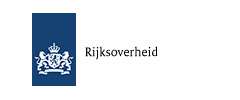Big retailers caught breaching EU chemicals law
A report released today reveals big retailers are breaching the EU’s flagship regulation on chemicals, while many products such as school supplies, sport accessories and sex toys are shown to contain high concentrations of ‘substances of very high concern’.
13.10.2010 | Joint Press Release
REACH, which stands for Registration Evaluation Authorisation and restriction of Chemicals, is an EU wide legislation that is meant to ensure the phase out of potentially damaging chemicals. It also sets out transparency requirements to give shoppers the right to know about whether a SVHC listed on a ‘candidate list’ (a list of chemicals to be phased on in the future [1]) are in products they might choose to buy.
Article 33.2 of REACH states that consumers should at least receive the name of the SVHC with information on how to safely use the product within 45 days of the request, free of charge. These obligations applied since 2008 when the first SVHCs where officially listed.
However, the EEB reveals today in their report ‘The Fight to Know?’ that half of the 158 information requests sent to European retailers between April-August 2010 received no response. The report, which set out to test the willingness of retailers to provide information, also discovered that only 22 percent of the requests received satisfactory answers which meet minimum legal requirements under REACH.
The legal department of Media Markt-Saturn, electronics providers with over 800 shops across Europe, simply declared that they were of the opinion that they did not have to provide such information. Bart Smits (Netherlands) refused to provide information to “third parties”, clearly breaching the “right to know”. C&A Belgium merely replied to one request via email with “?”.
“All citizens ought to be given full information about what properties of chemicals are in the products they buy. A parent, for instance, should automatically be informed whether a pencil case for their child contains phthalates which can impair sexual development," said Christian Schaible, EEB Chemicals Policy Officer.
"Unfortunately, EU law forces consumers to repeatedly ask about chemicals in stores, and suppliers are only obliged to give information under specific conditions. However, we have shown that not even this legal right is guaranteed in practice”, continued Schaible.
Widespread contamination.
High concentrations of phthalates, plasticisers used to make plastic more flexible, were found in many of the 93 products which underwent chemical analysis for the EEB at an independent laboratory.
A cosmetic bag from Carrefour Belgium was found to contain three SVHC phthalates, with a concentration of 8.7% of the phthalate DEHP - one of four phthalates on the candidate list which has been shown to carry in the blood of adults and can have feminising effects and alter brain development of infants.
Four out of the five sex toys tested were also shown to have very high concentrations of phthalates. One named “Prince Charming” contained 63 percent DEHP. Retailers still have time to phase out these chemicals, but EEB warns the REACH process is taking too much time.
While there are many more SVHCs that consumers should be protected from, even the few that are currently listed by the European Chemicals Agency are not taken into account by several retailers. [4]
READ THE REPORT
Contact
- Christian Schaible, EEB Chemicals Senior Policy Officer, chrstian.schaible@eeb.org
- Simon Nazer, EEB Press Officer, +32 (0) 22891309, mob: +32 (0) 496438469, simon.nazer@eeb.org
- Germany: Sarah Haeuser, BUND – Friends of the Earth Germany, +49 30 27586 463, mob: +49 176 93164868, sarah.haeuser@bund.net
- Hungary: Gergely Simon, simong@levego.hu
- The Netherlands: Chantal van den Bossche, WECF Press Officer +31.628129992 chantal.vandenbossche@wecf.eu
Notes to editors
[1] Substances that are included in the Candidate List (CL) have been identified as Substances of Very High Concern (SVHC). These substances may have very serious and often irreversible effects on humans and the environment. Substances on the CL may subsequently become subject to authorisation (Annex XIV) by decision of the European Commission. Once included in that Annex, they cannot be placed on the market or used after a date to be set, unless the company is granted an authorisation. If a SVHC is officially added to the candidate list, this triggers notification obligations to the whole supply chain which the citizens can benefit from (i.e. the right to know). The listing process depends on the initiative of the Member State competent authority or the European Chemicals Agency on behalf if the European Commission, that need to submit technical dossiers for each substance. For more information:
http://echa.europa.eu/chem_data/authorisation_process/candidate_list_en.asp
http://guidance.echa.europa.eu/authorisation_en.htm
[2] Participating members:
Bund: BUND (Friends of the Earth Germany) is a non-profit, non-partisan, and non-confessional federal grassroots NGO with more than 480,000 members and supporters.
www.bund.de
CAAG: The Clean Air Action Group is one of the best-known non-governmental organisations in Hungary that deal with the protection of the environment.
www.levego.hu
WECF: Women in Europe for a Common Future (WECF) safeguards our children's future by creating a healthy environment and sustainable development for all. We strive for balancing environment, health and economy.
www.wecf.eu
[3] SIN LIST 1.1.
The SIN List is an NGO driven project intended to speed up the transition to a toxic free world. The SIN List 1.1 currently consists of 356 (updated in October 2009) chemicals that have been identified as Substances of Very High Concern based on the criteria established by the new EU chemical regulation, REACH. The aim of the S.I.N. List is to push the legislative process and provide a tool that businesses and other actors can use to substitute hazardous chemicals with safer alternatives - ahead of legislation.
www.chemsec.org/list
































